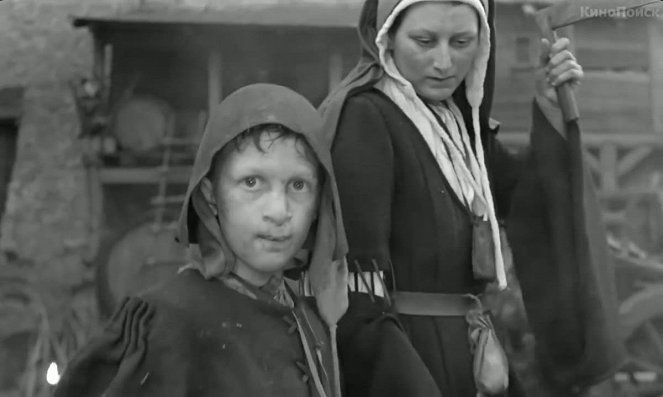Director:
Aleksey GermanCámara:
Yuriy KlimenkoMúsica:
Виктор ЛебедевReparto:
Leonid Yarmolnik, Yuri Tsurilo, Dmitriy Vladimirov, Yuris Lautsinsh, Anna Ovsyannikova, Валентин Голубенко, Марина Рокина, Lev Eliseev (más)Streaming (1)
Sinopsis(1)
En otro planeta que está pasando por la Edad Media, un grupo de historiadores de la Tierra capitaneados por Don Rumata, se sienten impotentes a ver las crueldades que observan a diario en ese lugar. Pero tienen prohibido por sus superiores interferir en el conflicto ante posibles cambios en el curso natural de la historia del planeta. Lo único que pueden hacer los historiadores en proteger y ayudar a un grupo selecto de individuos que parecen ser diferentes al resto de la población y que además pueden beneficiar a todo el planeta a través de su conocimiento. (Capricci Cine)
(más)Reseñas (2)
Three hours of German's no compromises, working the medium as thoroughly as anyone before him and refusing to show mercy to anyone. There's no music, no hope, no guidance, wisdom hangs from the nearest branch (literally) right next to the dogs, and legions of deformed masses wade ankle-deep in enough filth to make me rethink some of my nightmares. A rare case of a film that can't be fully appreciated, even with multiple viewings. It's utterly fascinating to watch the obsessive care taken in working with the setting, props, extras, and space, and while the obvious metaphor of contemporary Russia comes through clearly at first, there's no time or space to dwell on it. I can't wait to see it for maybe the sixth time. The dark side of Russian lyricism, untouched by the sun. EDIT 2021: Sadly, it's still not a film for this day and age of fetishizing audience comfort and celebrating cynical idiocy, but in the context of exploring the possibilities of cinematic storytelling, it's a crucial component that shouldn't be overlooked by anyone who wants to engage with film in general. Fresh from reading the source material, for example, I'm fascinated by how much the adaptation is fundamentally faithful, yet just as difficult to navigate. As with his other films, German is not interested in making us follow the plot, but in making us feel it.
()
1) Mise-en-scène. It is necessary to remember the true origin of this word - in the original term "mise en scène," which literally means "placing" "on" "the stage," i.e., placing objects and characters on that part of the theater boards or space in front of the camera that will be a substitute for the world for the following few minutes, and a substitute that is all the more believable the better you are able to arrange those objects. German demonstrated his genius precisely in how he was able to densify, shape, and make this film mise-en-scène perfectly plastic and tangible, and thus his entire fictional world. Just as a visitor to the Hermitage marvels at how every section of the palace halls is decorated with ornaments and gilding, here one marvels at how every corner of the imaginary space is filled with dirt, mud, decaying wood, and decaying people. 2) Camera. This time, German, as one of the greatest poets of the film camera, lent his services to the mise-en-scène, and his detailed and intimate shots allow the audience to almost touch everything that created the world of the planet Arkanar for three hours, and thanks to it and the mise-en-scène, the entire world of the audience. 3) Synthesis. A film about the dilemma of uninvolved observation versus participatory co-responsibility thanks to the camera, mise-en-scène, and resignation from narrating the plot, which would divert the viewer's attention from the proximity of all the dirt and mud of Arkanar, truly allows this dilemma to be experienced. It is because of all these techniques that the viewer experiences exactly what the main character undergoes, i.e., being irreversibly and fatefully drawn into a foreign world, be it another planet or the fictional world of the film.
()

